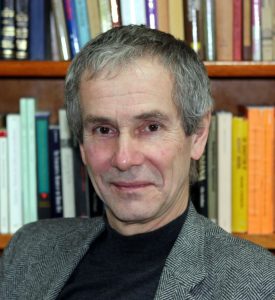Tupac Cruz
Universidad de los Andes
Walter Benjamin’s Theory of Fortune
Friday, February 24, 12:00pm, Swift 403
This study of Benjamin’s ‘theory of fortune’ focuses on what I call an ’analytics of work’: an effort to divide the genus ‘productive activity’ in two species: activities that produce commensurate results (what we call ‘work’) and activities that ‘summon fortune’ (what Benjamin calls ‘practices’). Practices are ways for an agent’s will to “abdicate in favor of the body,” and they articulate a sphere of action that eludes the distinction between the voluntary and the involuntary. The study of practice allows Benjamin to determine the specific, anomalous vitality of our neglected or forgotten wantings, whose fulfillments populate the realm of fortune.
Light refreshments will be served.
The Workshop on the Philosophy of Religions is committed to maintaining itself as a fully accessible and inclusive workshop. Please contact Workshop Coordinator Matthew Peterson (mjpeterson@uchicago.edu) in order to make any arrangements necessary to facilitate your participation in workshop events.





